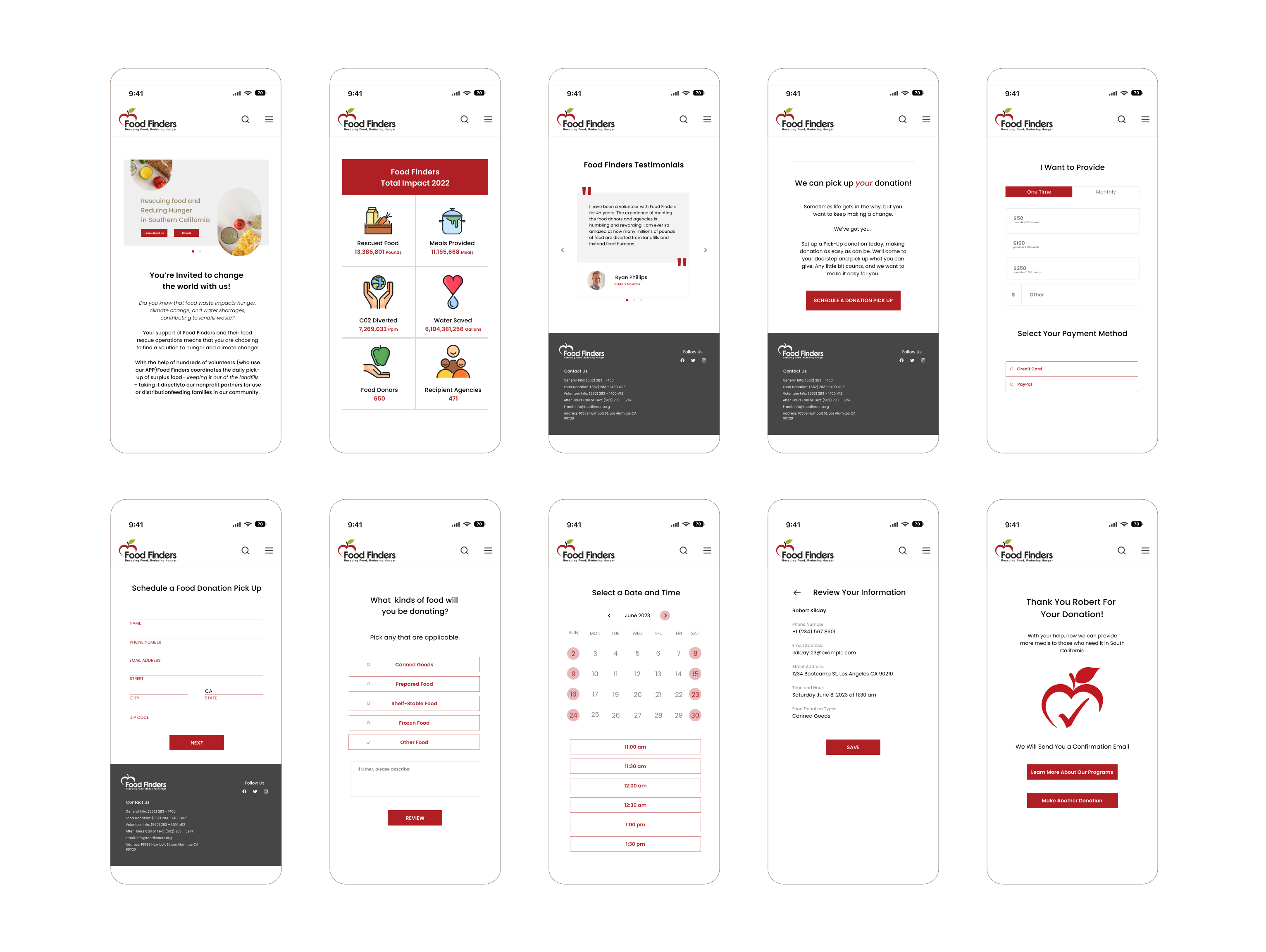
back to portofolio
Food Finders
PROJECT DESCRIPTION:
FoodFinders is an online platform that connects individuals and organizations with surplus food to local charities and food banks in need. By helping the donation process, FoodFinders plays a vital role in reducing food waste and fighting hunger in communities. To better serve users and optimize the donation experience, it is crucial to understand the needs of individuals who wish to donate on the platform. By identifying these needs, FoodFinders can personalize their services, provide appropriate resources, and enhance user satisfaction.
ROLE IN TEAM:
Research, visual identity & prototyping.
THE GOAL:
The main goals were to understand the user experience on FoodFinders.org, identify the potential areas for improvement and provide recommendations to enhance usability and overall good experience.
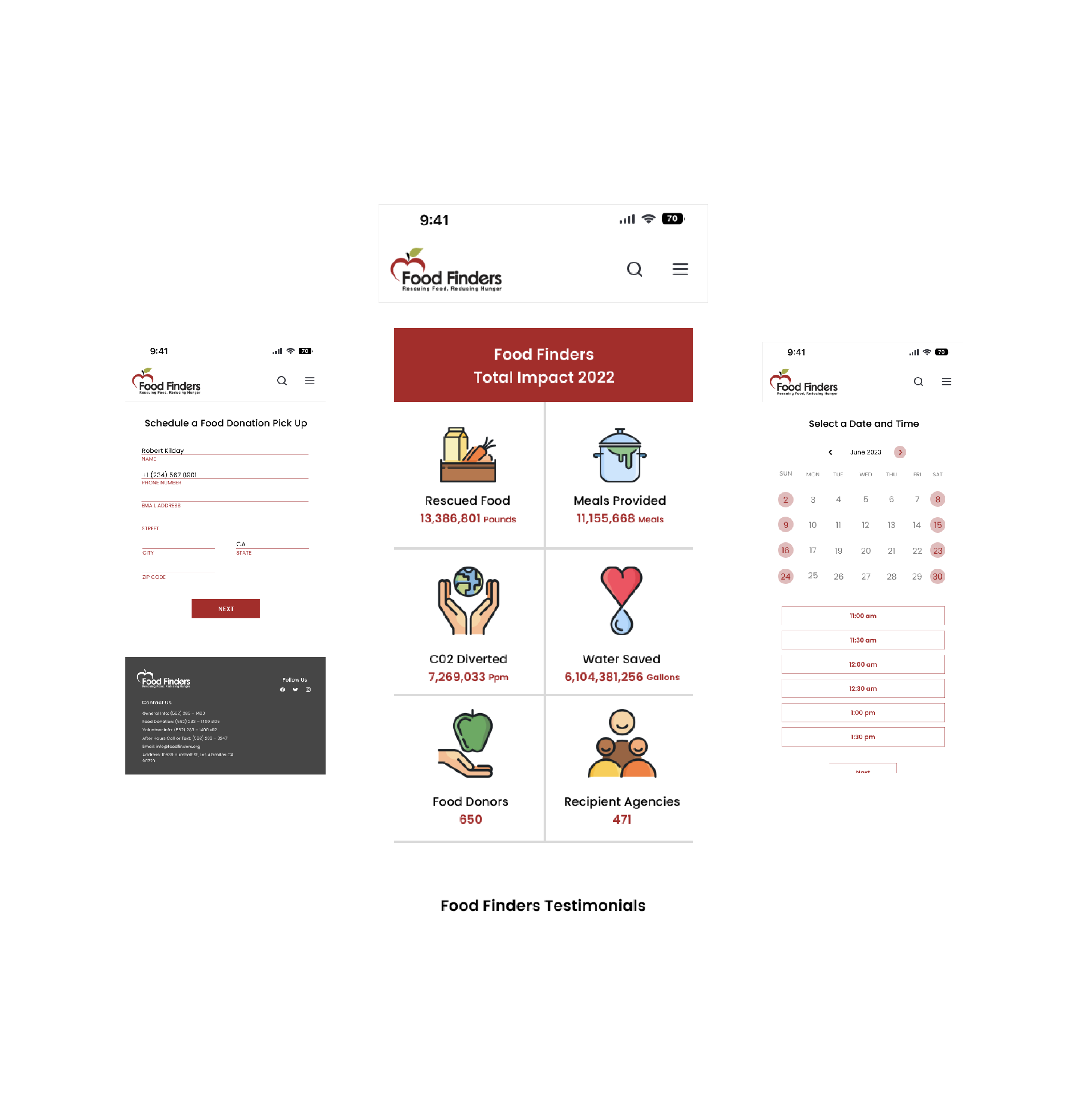
DESIGN PROCESS
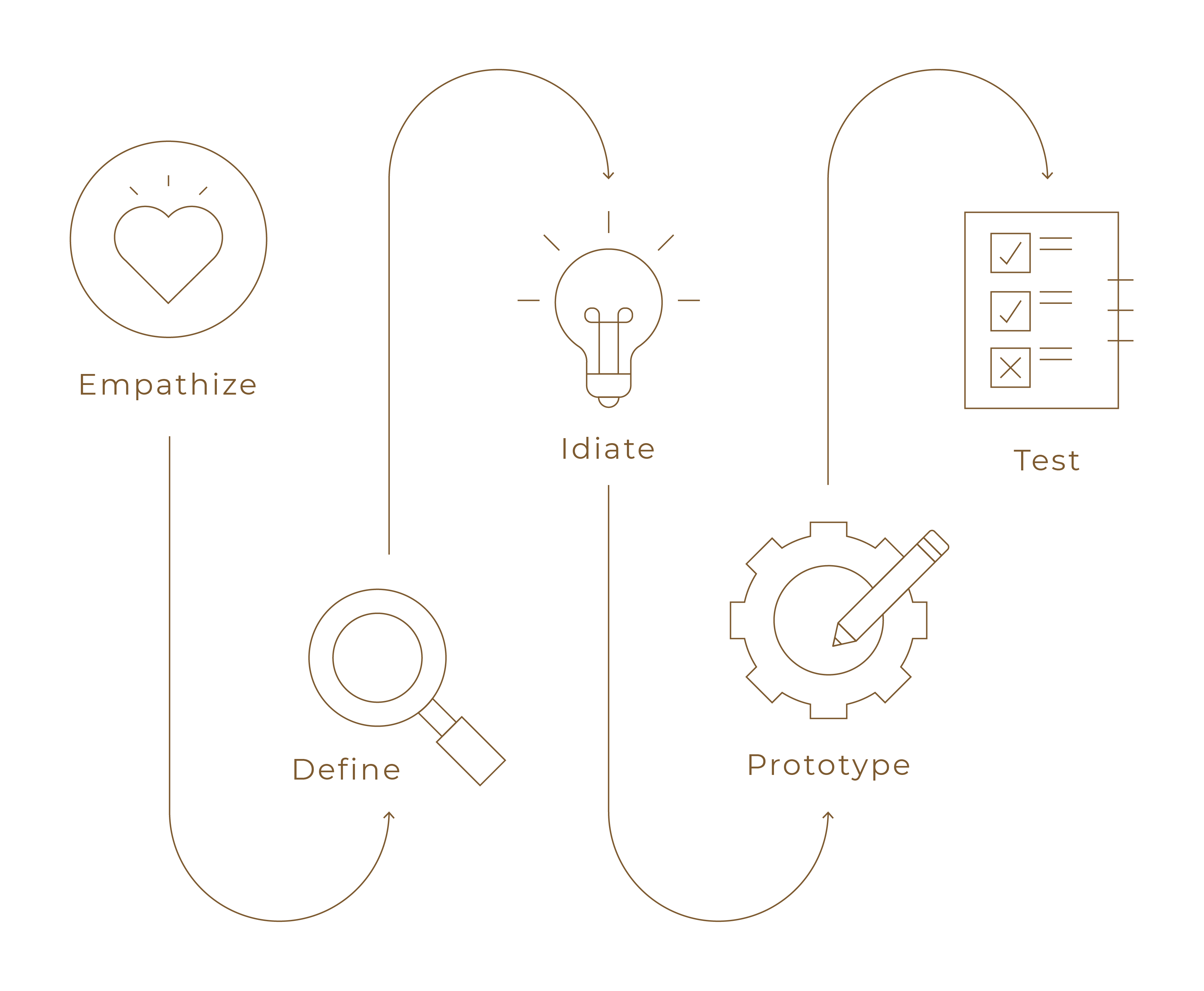
RESEARCH
The interview questions aimed to uncover insights into individuals' charitable giving and volunteering preferences. They explored factors influencing donation decisions, the role of transparency in charitable organizations, preferred communication methods for donation requests, donation frequency, trust in charities, allocation of donations, volunteering experiences, improvements to the volunteering process, donation preferences, how individuals discover charities, time spent volunteering, and challenges faced during the donation or volunteering process. These insights help inform charity practices and outreach efforts.

“Sometimes, I like to donate items more than money.”

“I need to feel that I’m contributing with something that makes me feel good.”

“Transparency is a big factor for if I work with a charity.”
PROBLEM STATEMENT
We believe that redistributing surplus food and supplies for those in need will help bring awareness to those who lack the necessary resources, help save thousands of pounds of food, and lower the number of people in Southern California that are affected by chronic hunger.
USER INSIGHT
People in Southern California who want to help make a change need to build trust and confidence in FoodFinders to be able to confidently donate and volunteer with the organization because trust is needed when people are choosing which charities to commit their time and money to.
LOW-FI PROTOTYPE
Drawing inspiration from well-established practices of Food Finders, we embarked on our journey towards crafting an innovative solution. Our initial steps led us to develop low-fidelity prototypes, a crucial phase in the evolution of our project. These prototypes served as the starting point for the first round of testing, enabling us to gather valuable insights, refine our concepts, and validate our ideas.
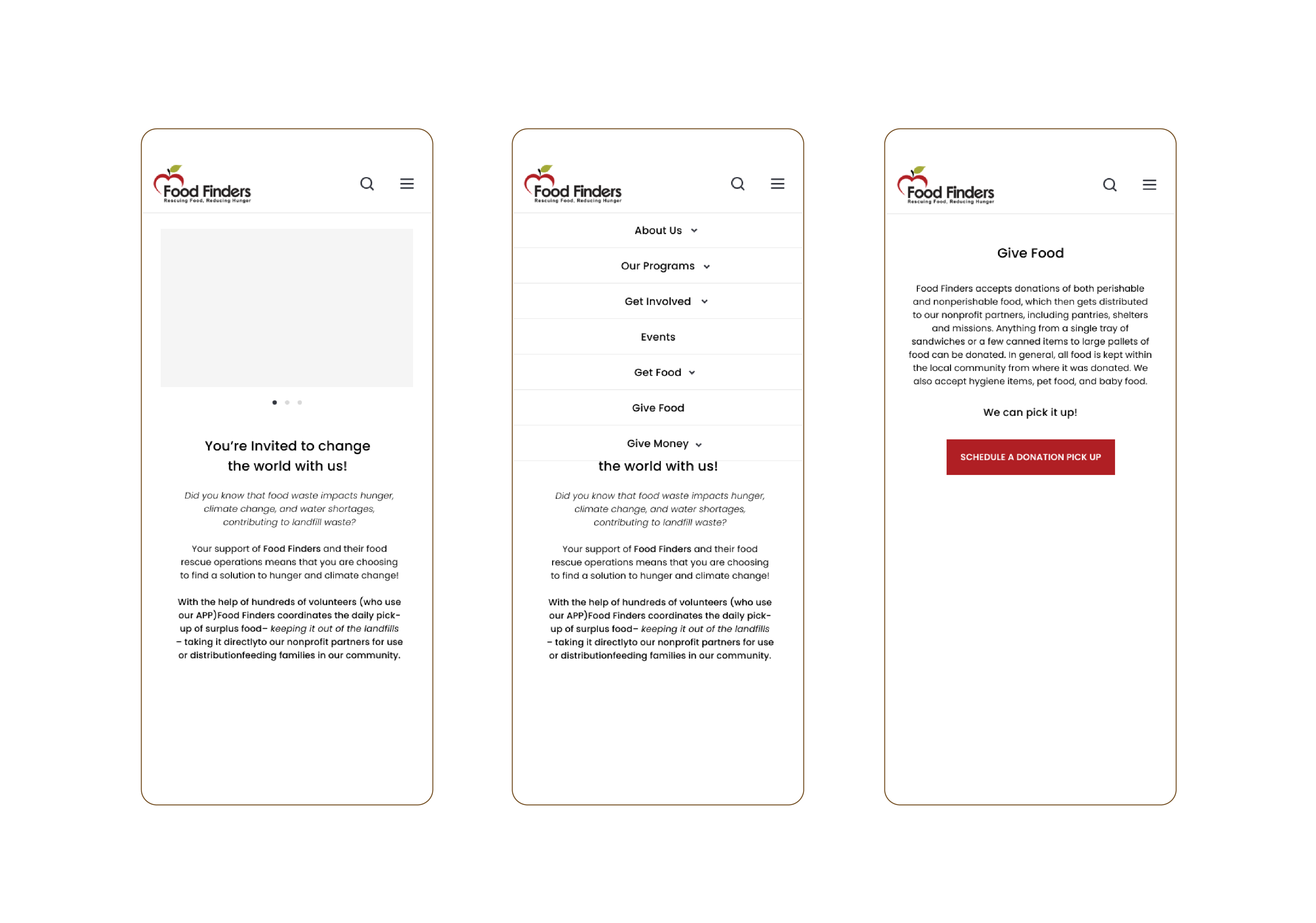
PROTOTYPE TESTING AND ITERATION
The insights derived from user testing illuminated vital aspects of our project and opportunities for refinement and enhancement. Two prominent observations surfaced:
These insights have not only provided us with valuable user perspectives but have also emphasize the importance of effective communication and user-friendly interfaces.
TYPOGRAPHY
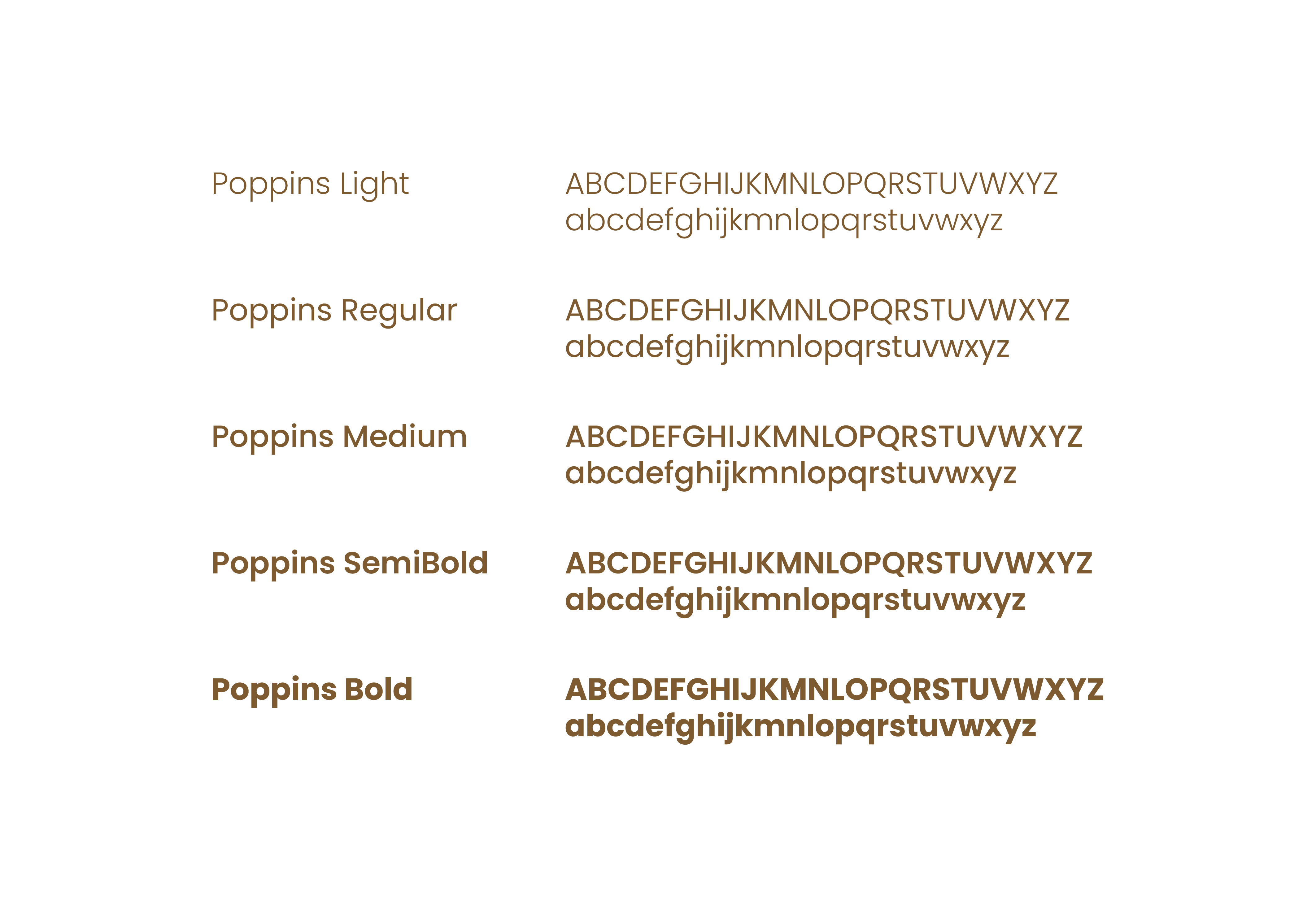
COLOR SCHEME
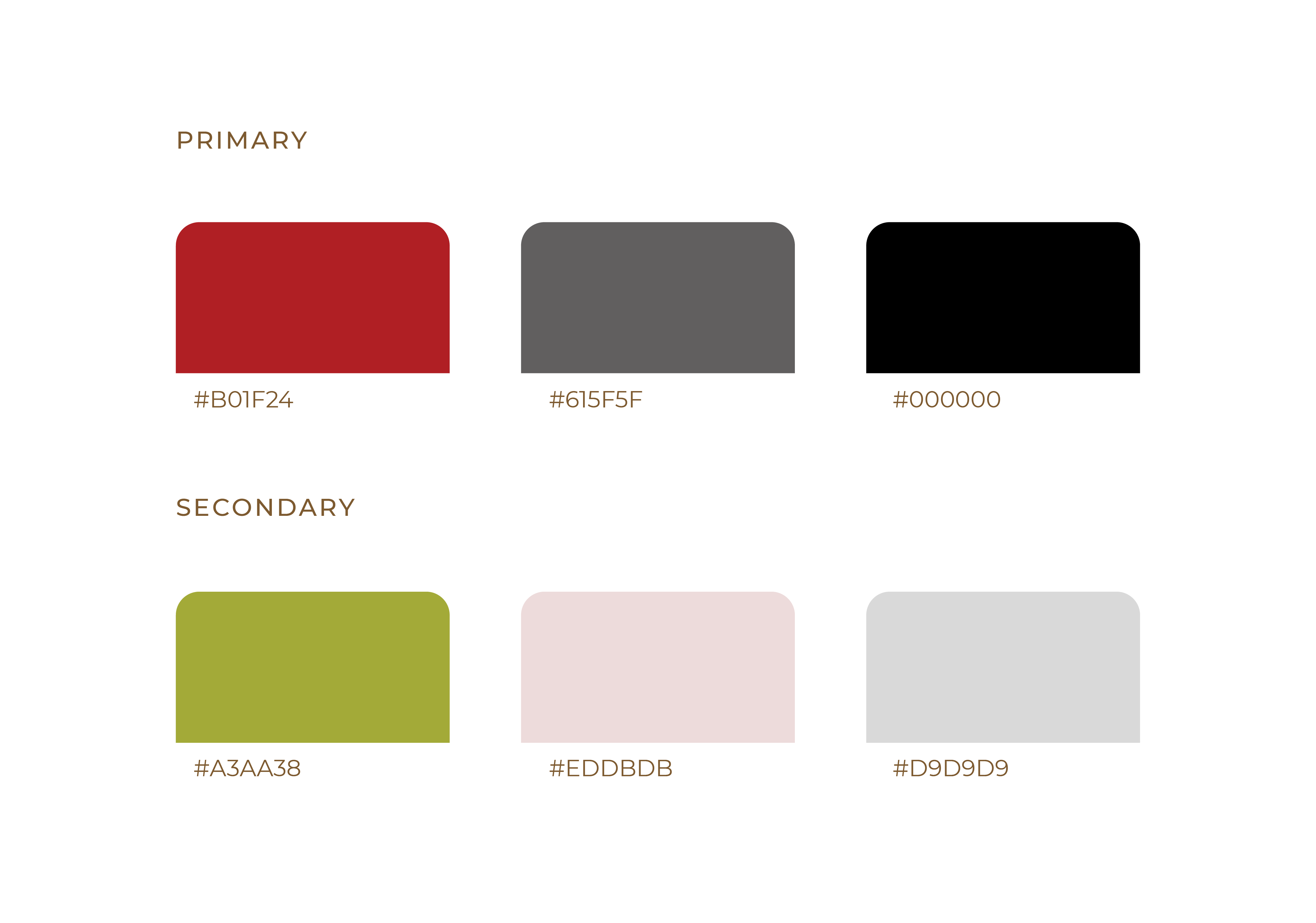
COMPONENTS
.png)
HI-FI PROTOTYPE
With the foundational design elements established based on the insights and requirements derived from the Food Finders project, we progressed to the development of high-fidelity wireframes. This phase marked a pivotal step in translating our user-centric design concepts into detailed and polished visuals tailored to the specific needs of the food donation and distribution system. High-fidelity wireframes became instrumental in bringing the app's user interface to life, encapsulating the full range of interactions, visuals, and functionality. These wireframes provided a tangible preview of the app's appearance and user experience, allowing us to fine-tune and perfect the design, aligning it even more closely with the core objectives of Food Finders before advancing to the development stage.
Click here to try the protorype
